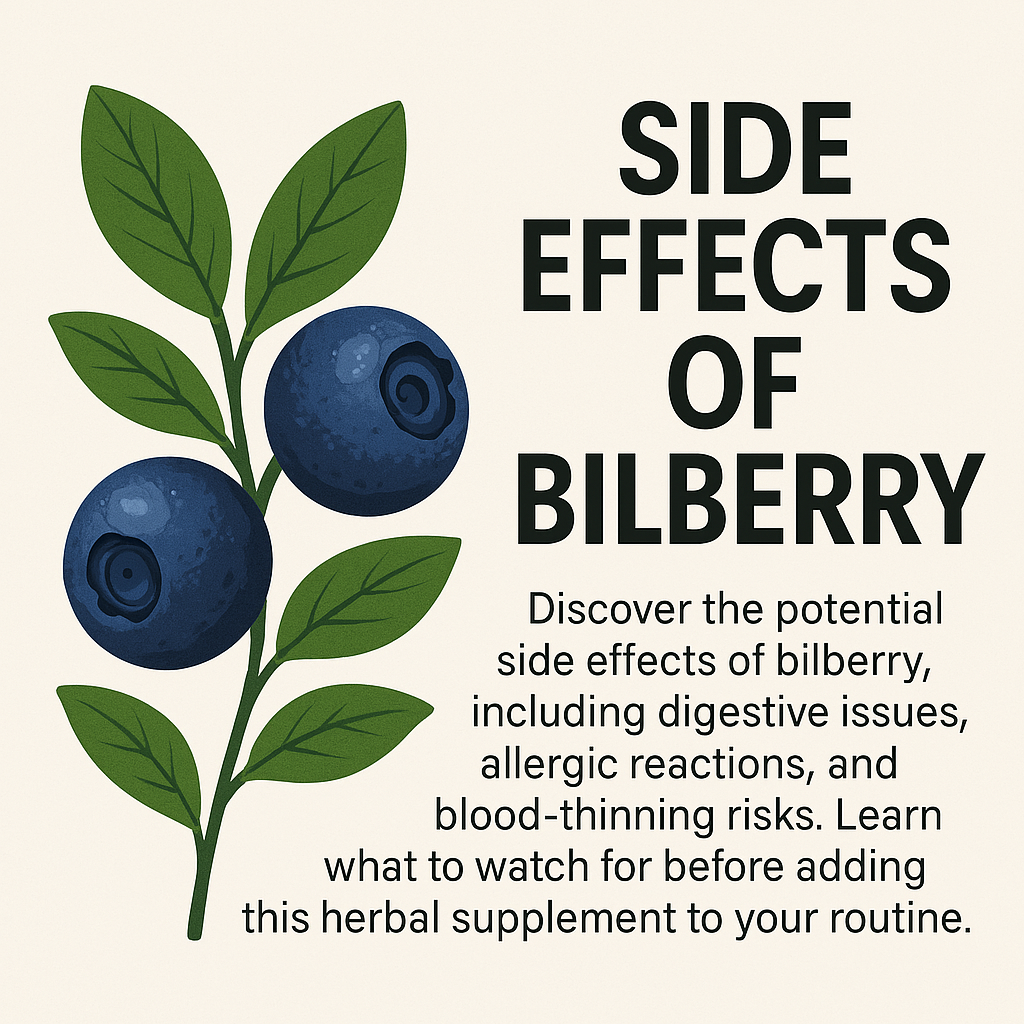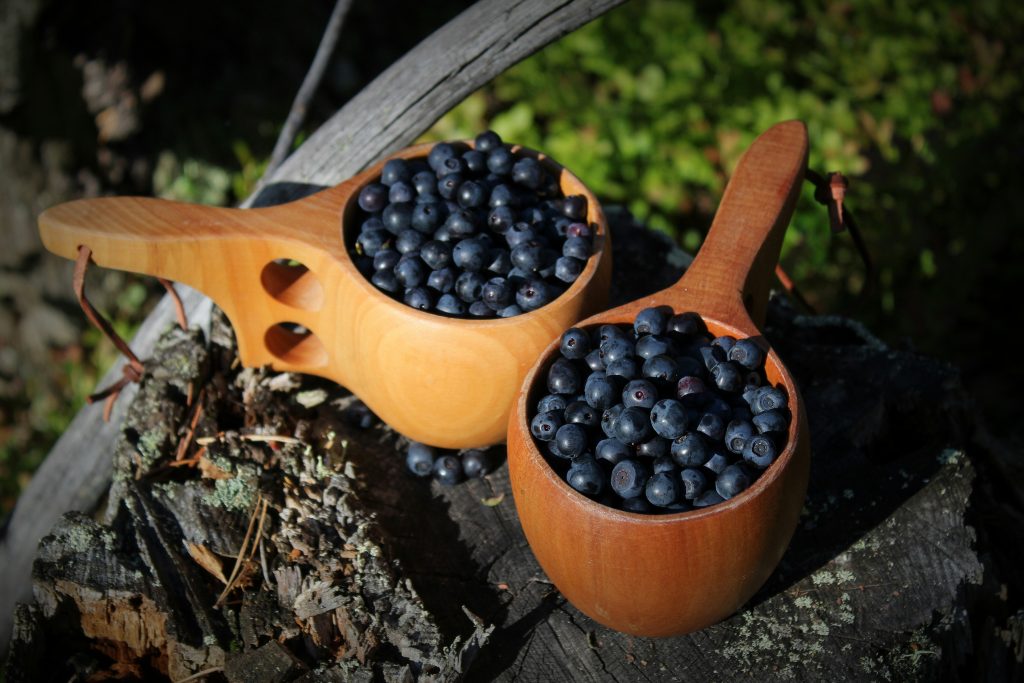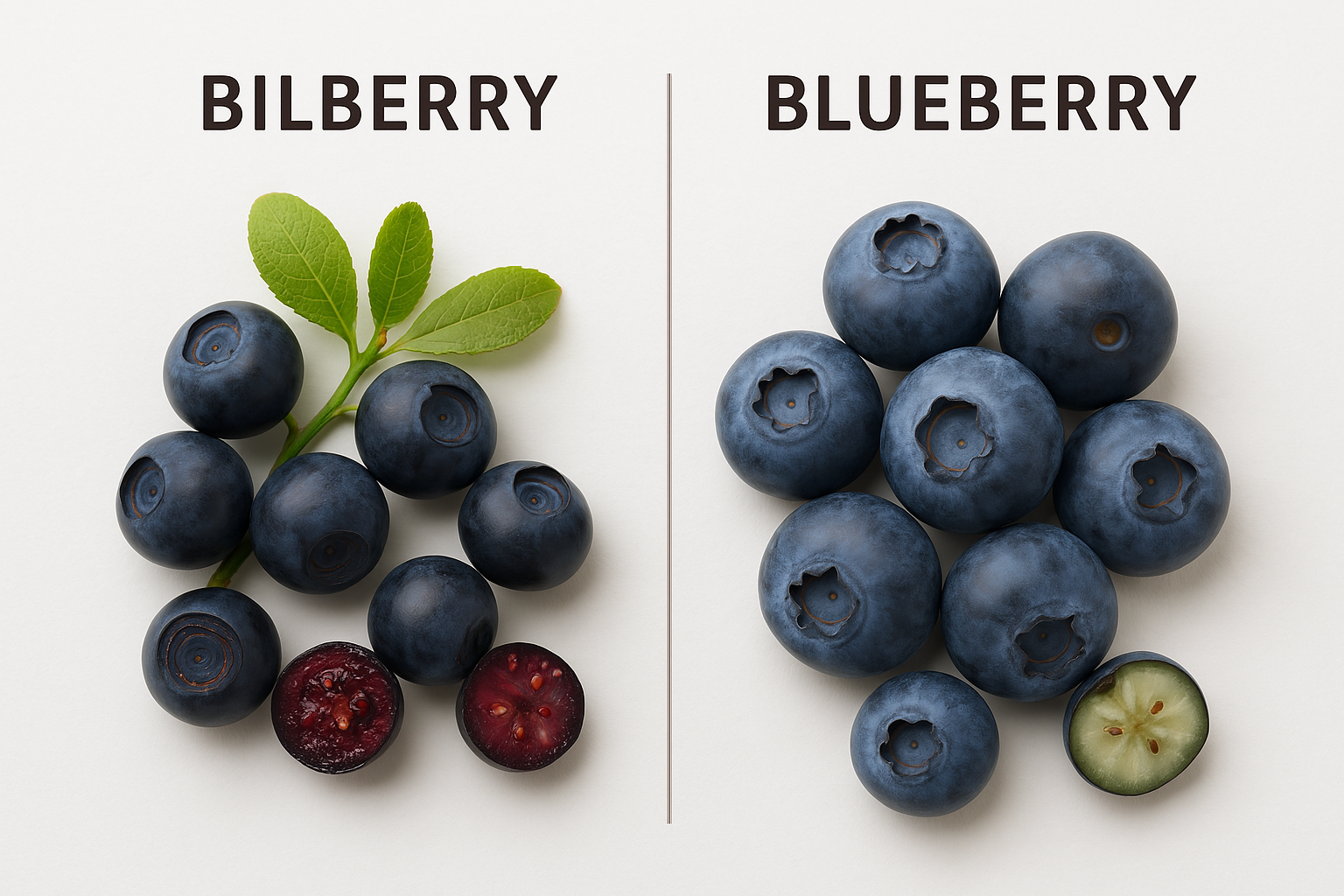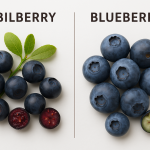
Bilberry (Vaccinium myrtillus), a small, dark blue fruit native to Europe, is often praised for its antioxidant-rich profile and potential health benefits. Commonly used in supplements, extracts, and teas, bilberry is most well-known for supporting eye health, improving circulation, and reducing inflammation. However, like many herbal remedies, bilberry may come with side effects, especially when taken in high doses or combined with certain medications.
Common Side Effects
For most people, consuming bilberry in moderate amounts—such as those found in food—is generally safe. However, when taken in supplement or extract form, especially in high doses, some users may experience side effects, including:
- Digestive Issues: Nausea, upset stomach, or mild cramping can occur, especially when bilberry is consumed on an empty stomach.
- Dizziness or Headache: Some individuals report mild dizziness or headaches, although these side effects are not common.
- Allergic Reactions: Rarely, bilberry can cause allergic reactions such as itching, rash, or swelling. If you experience any signs of a serious allergic reaction (like difficulty breathing or swelling of the face or throat), seek medical attention immediately.
Blood-Thinning Effects
Bilberry contains natural compounds that may thin the blood and improve circulation. While this can be beneficial for people with circulation issues, it can pose a risk for those:
- Taking blood-thinning medications (e.g., warfarin, aspirin, clopidogrel)
- Scheduled for surgery (stop using bilberry at least two weeks prior)
- Prone to bleeding disorders
The blood-thinning effects of bilberry are mainly due to its rich content of flavonoids, particularly a class called anthocyanins (one of which is resveratrol). These are the same compounds that give bilberry its deep blue-purple color and antioxidant power.
Here are the key natural compounds in bilberry that may contribute to blood-thinning effects:

🫐 Anthocyanins
- What they are: Water-soluble pigments found in bilberries and other dark berries.
- Action: Anthocyanins help improve capillary strength, reduce inflammation, and inhibit platelet aggregation (which is part of the clotting process). This can contribute to a mild blood-thinning effect.
- Example compounds: Delphinidin, cyanidin, malvidin derivatives.
💚 Flavonols (such as quercetin and myricetin)
- What they are: A broader class of flavonoids found in plants.
- Action: Quercetin, in particular, has been shown to have antiplatelet and anti-inflammatory effects, which may support cardiovascular health and reduce the risk of clot formation.
🌿 Tannins and phenolic acids
- What they are: Astringent compounds that also act as antioxidants.
- Action: While their role in blood-thinning is less direct, they support vascular health and reduce oxidative stress, potentially complementing the effects of anthocyanins.
Combining bilberry with anticoagulants or antiplatelet drugs may increase the risk of bleeding or bruising. The key mechanism is inhibition of platelet aggregation—essentially making it harder for blood cells to clump together and form clots. This is similar (though milder) to how aspirin works. This is beneficial in preventing clots but can increase the risk of bruising or bleeding, especially when combined with other anticoagulant drugs.
Bilberry for Eyesight
Bilberry is actually best known for its positive effects on eyesight—particularly for improving night vision, reducing eye fatigue, and supporting overall eye health thanks to its high content of anthocyanins, which help improve blood flow to the eyes and reduce oxidative stress.
Long-Term Safety Concerns
Although bilberry has a long history of traditional use, there’s limited research on the long-term safety of high-dose bilberry supplements. Overuse may lead to:
- Toxicity: There’s concern that consuming large amounts of bilberry leaf (not the fruit) may be toxic, particularly to the liver. Always ensure you’re using fruit-based products unless advised otherwise by a healthcare provider.
- Unpredictable Interactions: Herbal supplements can interfere with medications or other health conditions. It’s essential to consult your doctor before beginning any new supplement, especially if you have chronic health concerns.
Conclusion
Bilberry offers promising health benefits, particularly for eye health and circulation, but it’s not without its risks. While food sources of bilberry are generally safe, supplements—especially in high doses—should be used with caution. Always talk to a healthcare professional before starting bilberry if you’re on medications, have medical conditions, or are pregnant or breastfeeding.
A Little Bit Deeper Research
There is so much to learn in the world of resveratrol, antioxidants, superfoods and wine. This is the place to start, no matter what, if you indeed are looking to maximize your health and live longer.
 |
Blueberry vs Bilberry Despite their likeness, these berries differ significantly in their nutrient profiles, medicinal uses, and notably, their resveratrol content. |
 |
What are Blueberries Health Benefits? In the world of antioxidants, resveratrol and the OPC’s in blueberries are the superheros. |
